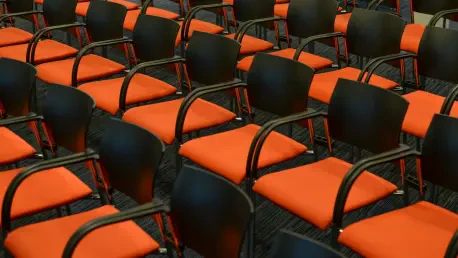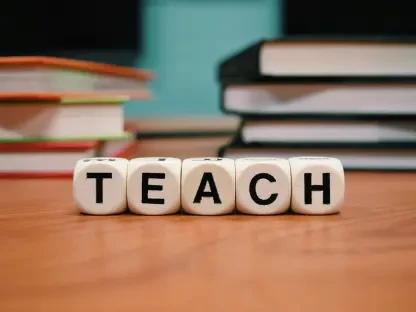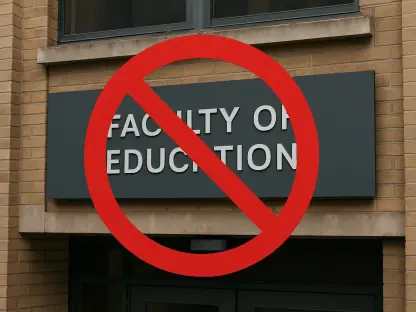As the landscape of K-12 education continues to evolve with unprecedented challenges and opportunities, staying informed and connected has never been more critical for educators, administrators, and policymakers. In 2026, a remarkable lineup of conferences across the United States offers a chance to dive into the latest trends, from technological breakthroughs to student well-being initiatives, ensuring that every professional in the education sector can find a platform for growth. These events are not just gatherings; they are transformative experiences designed to spark innovation, foster collaboration, and address the pressing needs of schools and districts. Whether the focus is on integrating cutting-edge tools into classrooms or shaping district-wide policies, these conferences provide a roadmap for navigating the complexities of modern education. With diverse topics and locations, they cater to a wide array of roles and interests, promising actionable insights and renewed inspiration for all attendees. Let’s explore the standout events that are set to redefine professional development in the coming year.
Emerging Trends Shaping K-12 Education
Harnessing Technology for Learning
The rapid integration of technology into education demands attention, and several key events in 2026 are poised to lead the charge in showcasing digital advancements. Conferences such as the Future of Education Technology Conference (FETC) and ISTELive, both hosted in Orlando, Florida, stand out as premier destinations for exploring the newest tools and platforms. These gatherings delve into transformative solutions like generative artificial intelligence and interactive learning systems that can redefine classroom engagement. Attendees can expect hands-on workshops and keynote sessions that highlight practical ways to implement technology, ensuring that both students and educators benefit from enhanced learning environments. With a focus on bridging the gap between innovation and application, these events are indispensable for those looking to stay ahead in an increasingly digital educational landscape.
Beyond the tools themselves, the conversation around technology also encompasses critical issues like cybersecurity, which is a growing concern for schools nationwide. The National K-12 Cybersecurity Leadership Conference in Albuquerque, New Mexico, and the Consortium for School Networking (CoSN) Annual Conference in Chicago, Illinois, tackle the urgent need to protect sensitive data from threats like ransomware. These events bring together IT specialists and administrators to discuss robust strategies for safeguarding school systems, offering insights into the latest security protocols and policies. By emphasizing proactive measures and real-world case studies, they equip attendees with the knowledge to mitigate risks effectively. For any district prioritizing data privacy and system integrity, participation in these conferences is a vital step toward building a secure educational framework.
Prioritizing Student Well-Being
Addressing the emotional and psychological needs of students remains a cornerstone of effective education, and several 2026 conferences are dedicated to this crucial area. The National Association of School Psychologists (NASP) Annual Convention in Chicago and the American School Counselor Association (ASCA) Conference in New Orleans provide essential platforms for professionals to explore mental health interventions. These events focus on equipping attendees with evidence-based strategies to support students facing stress, anxiety, and other challenges. Through expert-led sessions and collaborative discussions, participants gain access to resources that can be directly applied in school settings, fostering environments where students feel supported and understood. For those committed to nurturing the whole child, these gatherings offer invaluable perspectives.
Equally important is the push for inclusive education, ensuring that every student, regardless of ability, has access to quality learning opportunities. The Council for Exceptional Children (CEC) Convention & Expo in Salt Lake City, Utah, and the Council of Administrators of Special Education (CASE) Conference in Providence, Rhode Island, are tailored to address the needs of students with disabilities and gifted learners. These conferences highlight cutting-edge research and teaching methods designed to create equitable classrooms, offering practical tools for educators and administrators alike. Attendees can engage in deep dives into policy updates and individualized education plans, ensuring compliance while maximizing student potential. For professionals in special education, these events are critical for staying informed and connected with a community dedicated to inclusivity.
Leadership and Specialized Focus Areas
Strengthening Governance and Policy
Systemic change in education often begins at the leadership level, and 2026 brings powerful opportunities for district leaders to refine their impact through targeted conferences. The AASA National Conference on Education in Nashville, Tennessee, and the National School Boards Association (NSBA) Conference in San Antonio, Texas, gather superintendents and board members to address overarching policy trends and governance challenges. These events provide a forum for discussing legislative shifts, funding issues, and strategic planning, with an emphasis on sharing successful models from across the country. By fostering dialogue among top decision-makers, they help shape the future of K-12 systems, ensuring that policies reflect the diverse needs of students and communities. For those in high-level roles, these conferences are essential for driving meaningful progress.
At a more granular level, building leadership also plays a pivotal role in shaping school culture and outcomes, and specific events cater to this audience. The National Association of Elementary School Principals (NAESP) conference in Orlando focuses on the unique challenges faced by primary school leaders, offering tailored sessions on day-to-day operational hurdles. From managing staff development to implementing new curricula, attendees gain practical solutions that can be applied directly to their schools. The emphasis on actionable takeaways ensures that principals leave with clear strategies to enhance their leadership effectiveness. For those overseeing elementary education, this event serves as a vital resource for addressing immediate needs while building long-term capacity within their institutions.
Advancing Subject-Specific and Niche Education
For educators passionate about specific disciplines, 2026 offers a wealth of conferences dedicated to enhancing subject-specific instruction with innovative approaches. Events such as the National Science Teaching Association (NSTA) in Anaheim, California, the National Council of Teachers of Mathematics (NCTM) in Denver, Colorado, and the National Council of Teachers of English (NCTE) in Philadelphia, Pennsylvania, provide deep dives into pedagogy and resources for science, math, and language arts. These gatherings bring together subject experts to share the latest teaching methods and curriculum enhancements, ensuring educators can inspire students with fresh content. Attendees benefit from targeted workshops that address common instructional challenges, making these events a cornerstone for professional growth in specialized fields.
Beyond traditional subjects, career readiness and technical education are also in the spotlight, preparing students for future workforce demands. The Association for Career and Technical Education (ACTE) CareerTech Vision in New Orleans, Louisiana, focuses on hands-on learning and vocational training, offering strategies to align programs with industry needs. This conference connects educators with business leaders to ensure relevance in curriculum design, providing a bridge between classroom learning and real-world application. For those involved in career and technical education, it represents a unique opportunity to expand programs that equip students with practical skills, setting them on a path to success after graduation.
Supporting Unique Educational Communities
Certain segments of the K-12 landscape face distinct challenges that require specialized attention, and 2026 conferences address these often-overlooked areas with precision. The National Forum to Advance Rural Education in San Antonio, Texas, and the National Association for the Education of Young Children (NAEYC) Conference in Washington, D.C., tackle the specific hurdles of rural schools and early childhood education. These events explore issues like limited resources in remote areas and foundational learning for the youngest students, offering tailored solutions and best practices. Attendees gain insights into advocacy and program development that can transform outcomes for these unique populations, ensuring that every child has a strong start regardless of location or circumstance.
Additionally, other critical yet niche aspects of education, such as nutrition and community engagement, are highlighted in dedicated forums. The School Nutrition Association (SNA) Annual National Conference in Charlotte, North Carolina, and the National Service-Learning Conference in St. Paul, Minnesota, focus on school food services and youth-adult partnerships, respectively. These conferences delve into innovations in meal programs that support student health and learning, as well as initiatives that empower students through service projects. By addressing these essential support systems, they ensure a holistic approach to education that values every facet of a student’s experience. For professionals in these specialized roles, these events provide a rare chance to connect and grow within their specific domains.
Building Connections and Accessibility
Fostering Collaboration Across Roles
A unifying theme across all 2026 conferences is the emphasis on collaboration, which serves as a powerful tool for addressing the multifaceted challenges in education. These events are designed to break down silos, bringing together teachers, administrators, counselors, and other stakeholders to exchange ideas and experiences. Sessions often include interactive formats like panel discussions and breakout groups, encouraging participants to share solutions to common problems, from classroom management to district budgeting. This collective approach ensures that no one faces challenges in isolation, amplifying the impact of individual efforts through shared knowledge. For anyone in the K-12 sector, the networking opportunities at these gatherings are as valuable as the content itself, creating lasting professional relationships.
Moreover, the diversity of perspectives at these conferences enriches the dialogue, ensuring that solutions are comprehensive and inclusive of various roles and contexts. Whether it’s a superintendent learning from a teacher’s on-the-ground insights or a counselor sharing strategies with a school board member, the cross-pollination of ideas drives innovation. Events often feature structured networking activities, making it easier to connect with peers who share similar goals or face parallel challenges. This focus on building a community of practice underscores the belief that education’s toughest issues are best tackled collectively, fostering a sense of solidarity among attendees. The connections made here often extend beyond the event, shaping future collaborations and initiatives.
Maximizing Reach and Participation
Accessibility is a deliberate priority for the 2026 conference lineup, with events strategically spread across diverse locations and dates throughout the year. From major hubs like Chicago and Orlando to smaller cities like Albuquerque and St. Paul, the geographic distribution ensures that professionals from various regions can attend without excessive travel burdens. Additionally, the scheduling accommodates different academic calendars, with events occurring from January to December, allowing flexibility for busy educators and leaders. This thoughtful planning reflects a commitment to inclusivity, ensuring that location or timing does not hinder participation in these vital professional development opportunities.
Beyond physical accessibility, many conferences are also adapting to modern needs by offering hybrid formats, blending in-person attendance with virtual options. This approach broadens the reach, enabling those unable to travel to still engage with key content through live streams and recorded sessions. Organizers are focused on ensuring that digital platforms are user-friendly, maintaining the interactive elements that make these events so impactful. By prioritizing both geographic and technological access, the 2026 conferences demonstrate a forward-thinking approach to professional growth, ensuring that every educator and leader has a chance to contribute to and benefit from the collective learning experience.
Reflecting on a Year of Growth
Looking back at the array of conferences held in 2026, it’s evident that the K-12 education sector demonstrated a profound commitment to addressing its most pressing issues through targeted professional engagement. These events provided a dynamic space for educators and leaders to confront challenges ranging from digital security to student mental health, equipping them with innovative tools and strategies. As the year concluded, the emphasis on collaboration proved to be a lasting takeaway, with countless connections forged that continued to influence practices in schools and districts. For those who participated, the insights gained offered a foundation for sustained improvement, shaping how education adapted to an ever-changing landscape.
Moving forward, the focus should shift to applying the lessons learned from these gatherings, ensuring that the momentum of 2026 carries into future initiatives. Schools and districts are encouraged to prioritize ongoing professional development by integrating conference takeaways into strategic plans, whether through new technology rollouts or enhanced support programs for students. Establishing internal networks to maintain the collaborative spirit of these events can further amplify their impact, fostering continuous dialogue among staff. By building on the knowledge and relationships developed, the education community can ensure that the progress made becomes a stepping stone for even greater advancements in the years ahead.









